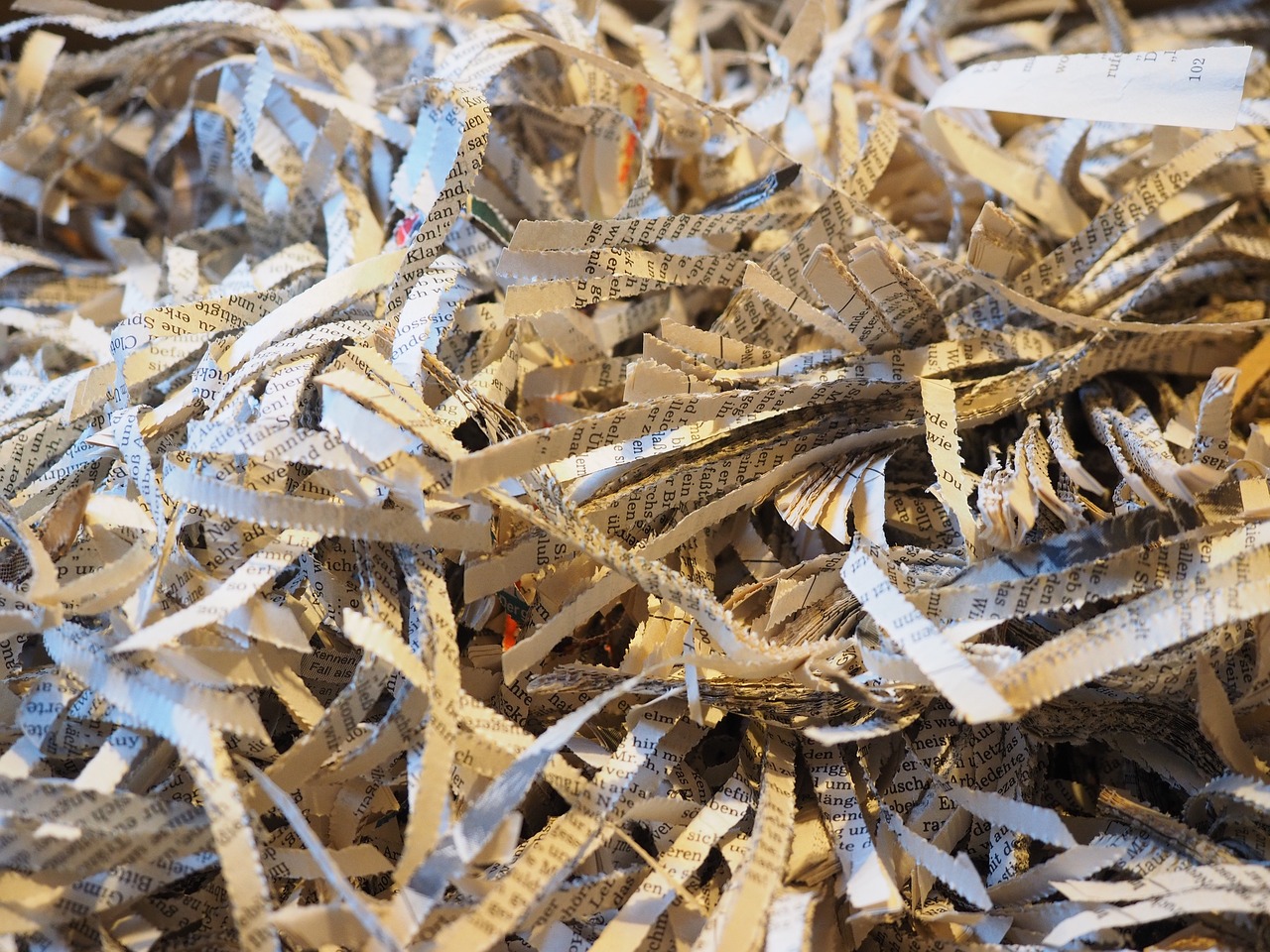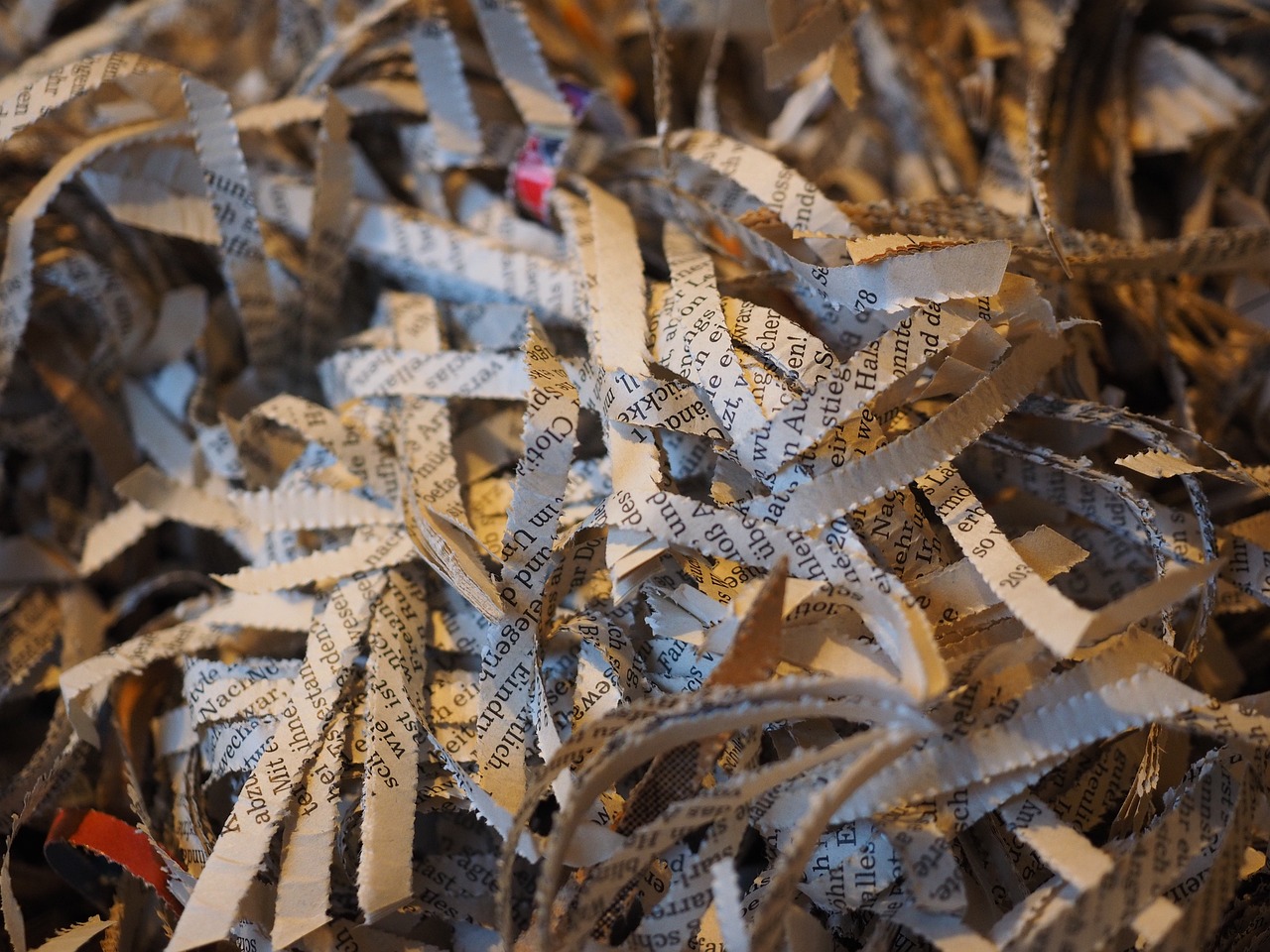Disposing of confidential material during an office clearance requires careful planning to ensure you comply with the law and protect sensitive data.
Confidential documents, financial data and electronic waste are some of the things you need to handle with care to avoid data breaches and other risks. Here’s a guide to help you do your office clearance securely and efficiently.
What is Confidential Waste
Confidential waste is any material that contains sensitive information that could be breached if not handled properly. This includes confidential documents such as financial records, employee data or business secrets.

With the rise of technology, electronic waste like hard drives and other digital storage devices also fall into this category.
Additionally, WEEE waste, which involves the disposal of electronic and electrical equipment, presents unique challenges due to its harmful contents and regulatory requirements. Disposing of confidential waste incorrectly can result in large fines and reputation damage.
Identifying and Segregating Confidential Waste
Identifying and segregating confidential waste is a crucial step in ensuring the secure disposal of sensitive information. Confidential waste includes any material that contains personal or sensitive data, such as financial information, employee records, or customer details.
To identify confidential waste, businesses should conduct a thorough audit of their office space and identify areas where sensitive information is stored.
Segregating confidential waste from general waste is essential to prevent data breaches and ensure compliance with data protection regulations.
Businesses can use secure bins or containers to store confidential waste, and label them clearly to indicate that they contain sensitive information.
It is also important to educate employees on the importance of segregating confidential waste and provide them with guidelines on how to handle sensitive information.
Preparing for an Office Clearance
Preparing for an office clearance requires careful planning and coordination to ensure a smooth and efficient process. Businesses should start by identifying the areas of the office that need to be cleared, and sorting items into categories such as confidential waste, electronic waste, and general waste.
It is also important to notify employees and stakeholders of the office clearance, and provide them with information on what to expect during the process.
Businesses should also ensure that all sensitive information is removed from electronic devices and equipment, and that all confidential documents are securely shredded or disposed of.
How to Protect Sensitive Data During Office Clearance
- Asses and Categorise Waste Start by identifying the types of confidential materials that need to be removed. This includes paper documents, electronic devices and other materials that contain sensitive information. Segregating these items ensures they are handled and disposed of correctly.
- Hire a Professional Office Clearance Service Working with an expert team that specialise in confidential waste disposal ensures you comply with the Data Protection Act. They offer a full range of services including secure shredding and destruction of confidential information so it can’t get into the wrong hands.
- Secure Destruction Confidential documents should be shredded so they are completely destroyed. Hard drives and other electronic waste must be destroyed using certified methods to remove all data. Shredding and destruction processes reduce the risk of data breaches.
- Comply with the Data Protection Act The Data Protection Act requires businesses to take reasonable steps to protect sensitive information. Proper disposal methods, full documentation of the disposal process and using licensed waste management services are key to compliance.
- Focus on Recycling and Sustainability To reduce your environmental impact make sure recyclable materials like paper, electronic waste and office furniture are handled correctly. A professional office clearance service can ensure waste is recycled or disposed of in an environmentally friendly way and reduce the need for landfills.
Complying with Regulations and Laws
Complying with regulations and laws is essential for businesses that handle confidential waste. The Data Protection Act requires businesses to handle personal data fairly and legally, and to take appropriate measures to prevent data breaches.
The Waste Electrical and Electronic Equipment (WEEE) Directive requires businesses to dispose of electronic waste in an environmentally responsible manner.

Businesses can comply with these regulations by implementing effective waste management practices, such as segregating confidential waste, using secure disposal methods, and providing employee training on data protection and waste management.
It is also important for businesses to keep records of their waste disposal activities, and to ensure that they are working with reputable waste disposal providers.
What a Professional Clearance Team Can Do
A clearance team with experience can simplify the office clearance process while maintaining high security standards. Handling WEEE waste, which includes electronic and electrical equipment, is crucial due to its harmful contents and regulatory requirements.
They offer services to suit business needs including removal of office furniture, electrical items and other materials. They also offer additional services like recycling and secure shredding so businesses have a one stop shop.
Why Proper Confidential Waste Disposal Matters
- Security: Protect your sensitive data and prevent it from getting into the wrong hands by securely handling and disposing of confidential material in compliance with the Data Protection Act.
- Compliance: Avoid fines by following data protection regulations.
- Environmental: Reduce your environmental impact through responsible recycling and disposal methods.
- Time: A professional team takes the hassle out of waste disposal for you.

The Importance of Secure Confidential Waste Disposal
Disposing of confidential waste during an office clearance is crucial for businesses that want to protect sensitive information and the Data Protection Act.
By using a professional office clearance service you can do it securely, efficiently and environmentally friendly. Whether it’s shredding confidential documents, destroying hard drives or recycling materials they offer peace of mind for businesses clearing their office.
Go with a company that specialises in confidential waste disposal and has the services you need. Secure, compliant and green office clearance is not just a nice to have but a must have for every business.

 CALL NOW
CALL NOW